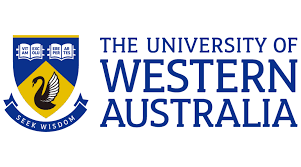University of Western Australia: Three UWA projects snare $1.9 million in national research funding
Three projects that will expand our understanding of the history of Aboriginal settlement and land use in WA’s north west, investigate how plant and microbial biotechnologies can help remediate alumina refining tailings, and study how new herbicides might be developed to manage weeds, have received a combined $1.9 million in research funding from the Federal Government’s Australian Research Council.
The funding, announced this week by Education and Youth Minister Alan Tudge, is part of the Australian Research Council’s linkage project scheme, with successful research projects based on strategic research alliances with various industry and community partners.
Researchers from the UWA Centre for Rock Art Research and Management will deploy a combination of traditional ecological knowledge and innovative science to investigate how mythological narratives of Australia’s deserts enable the sharing of knowledge in water-limited environments.
The project, which received just over $1 million in ARC funding, aims to provide new insights into human behaviour at rock art sites to ensure that intergenerational and culturally appropriate knowledge transfer protocols are in place at these significant heritage-listed sites.
Scientists in UWA’s School of Agriculture and Environment will look at ways of improving the way bauxite residue (alumina refining tailings) are stored, with their project ‘Accelerated tailings remediation with plant and microbial biotechnologies’ receiving $279,618 in funding.
With existing remediation approaches expensive, slow and often ineffective, the team aims to develop a pioneering approach which will enable safe, sustainable closure of storage facilities, safeguarding the strong contribution of the $15 billion alumina industry to Australia’s economy.
A further $597,495 ARC funding has been awarded to researchers at UWA’s School of Molecular Sciences to examine cutting-edge ways to overcome increasingly herbicide-resistant weeds, which are causing major problems in agriculture.
They’re aiming to rethink and revitalise herbicides to counter resistance and find ways in which compounds can work more efficiently, with their outcomes expected to be commercialised.
UWA Deputy Vice-Chancellor (Research) Tim Colmer said the ARC funding would support research that translated into economic, social and environmental impact.
“Importantly, all of these projects involve industry and community partnerships with researchers, all working together as teams as they work to solve real-world problems and deliver tangible benefits to the community in Australia and globally,” Professor Colmer said.

